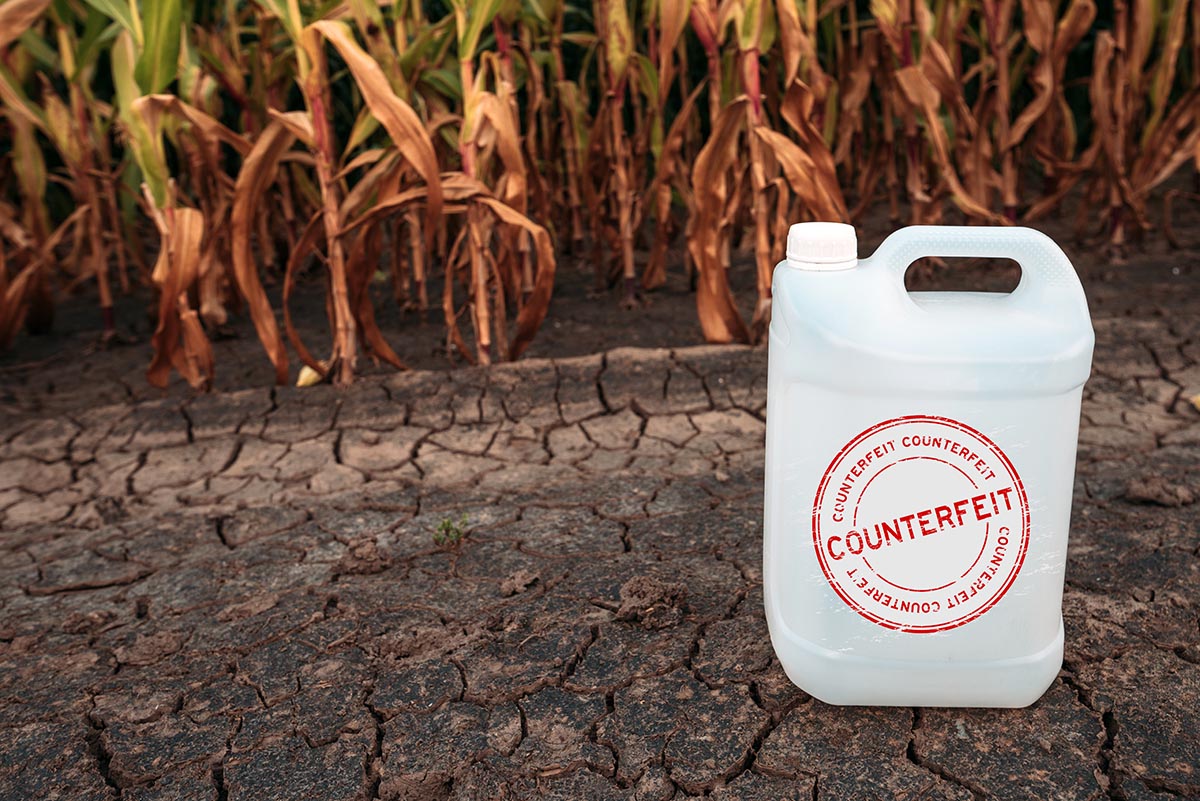Getting at the Root Cause: Authentication for Agro-Chemicals
Salzburg, August 14th, 2019
Look around. As you enjoy that salad (kale or beet), put on that blouse or dress shirt (cotton), relax on living room couch (pine) or outdoor hammock (hemp), consider how everything in our consumer culture, our entire culture, depends on agriculture.
While we normally associate agriculture with the farming of crops, the impact of the farm extends into food manufacturing and restaurants and extends to industries that rely on agriculture for raw materials, like forestry, textiles and apparel. Many agricultural crops are used to create non-food products: oils, resins, fibers, clothing, energy, cosmetics and plastics.
Economically, the farm sector represents a portion of GDP and tax base, and provides jobs, as much of 10% of employment in developed countries, and up to 75% in developing countries.
If you’re in the agro-chemical industry, you know that food security is one of the most critical policy priorities. Through agencies like the FDA in the United States, the EMA in Europe and the World Health Agency (WHO), sophisticated initiatives and systems regulate the production of end products. But what about food and product integrity further upstream in the supply chain, where agricultural chemicals are essential to pest-free crop growth?
According to the European Crop Protection Association (ECPA), the global trade in counterfeit and illegal pesticides is growing. Increasing quantities of fake and illegal pesticides are produced, marketed and sold by criminal organizations, including counterfeit and illegal pesticides putting our health, the environment and the global economy at risk.
Counterfeit pesticides are fake products produced and packaged to look like the real thing. Crop product counterfeiters take advantage of loose enforcement of existing laws and legislative loopholes, and are thriving below radar.
False products conveniently ignore international labelling requirements designed to ensure safety during transport on our roads and through our neighborhoods. Highly toxic, flammable and hazardous substances are transported without regard for public safety.
Sophisticated counterfeit products require an authentication solution. In most cases, today’s counterfeit products are almost “perfect” to the naked eye. So, how to eradicate these faux-product threats? How can manufacturers and major brands address the challenges of refilling, industrial counterfeits and the gray market?
With a deep agriculture industry experience, solution providers are focusing on viable solutions. Authentic Vision has developed a highly secure, unique Holographic Fingerprint™ tag, providing instant verification of authenticity for distributors, retailers, and consumers with any smartphone. Their sophisticated solution enables automatic recognition and immediate reporting of any tampering, including:
- Precise geolocation of agro-chemical counterfeiting attempts increasing effectiveness and efficiency of enforcement efforts
- Detection and geo-location of parallel imports in realtime
- Real-time market data and insights on channel and buyer behavior
- Mobile delivery of product information and ease of product registration
- Consumer communication, engagement and up/cross-selling
In the end, distributors, retailers and customers are empowered to instantly verify authenticity. Gray markets dissolve when end-customers are able to instantly recognize counterfeits with any smartphone anytime. Brands can now deploy quick, easy and reliable authentication through a customer smartphone app instantly confirms if the product is real along with engaging marketing messages and interaction.
It’s time to harvest without hesitation, through authentic agro-chemical product verification.

